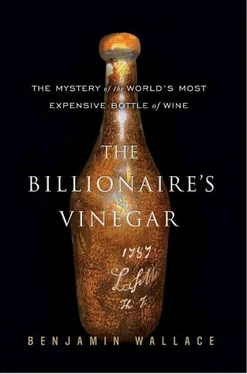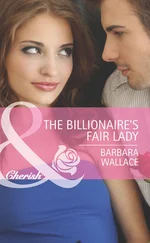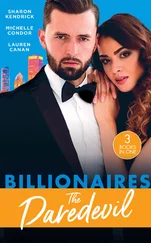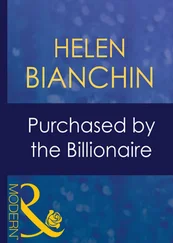The auctioneer’s delight in an object that would sell itself accounted for only half of Broadbent’s excitement. There was also the oenophile’s anticipation, for Lafite was Broadbent’s favorite wine. He loved the way it developed in the glass, revealing new depths and facets as it breathed. He thought Lafite the acme of elegance, a racehorse beside the snow horse of Mouton and the cart horse of Latour. But to open a bottle as old as this was to play roulette; Broadbent couldn’t help wondering what it might taste like. And how to price such an object? When cataloging it for auction, Broadbent gave the estimate as “inestimable.” He was rather pleased with his pun.
A number of commission bids—those placed in advance by bidders who could not, or didn’t want to, attend—had come in. Château Lafite-Rothschild, modern successor to the eighteenth-century vineyard, had placed a £5,000 bid; this had been so eclipsed by other advance bids that the Château was out of the running before the session even began. Broadbent could feel confident that a new single-bottle price record was about to be set.
In the West Room, he opened the bidding at £10,000. At first the bids came slowly, moving in £2,000 increments. A paddle would rise here. Another would bob up there. But things quickly heated up, and soon several people were raising paddles at every step.
Broadbent knew everyone in the London trade, and many of them were here in this room, but he reserved his greatest expectations for the Americans. The Jefferson connection, the strength of the dollar (it had hit a historic high earlier in the year), recent auction history—all these factors would surely tempt a deep-pocketed Yank to repatriate the bottle. Marvin Shanken, publisher of the magazine Wine Spectator, was here today, but Broadbent’s highest hopes were aimed at the fellow who sat left of the center aisle from where Broadbent stood: Christoper “Kip” Forbes, the thirty-five-year-old son of publisher Malcolm Forbes.
Broadbent didn’t think much of Malcolm Forbes, finding him to be “a mean sort of chap.” He knew that the American publisher collected first growths, the top-ranked Bordeaux reds, though only in lousy vintages. But it was undeniable that Forbes had money and would spend it for something he wanted, and Kip soon entered the bidding.
The price volleyed remorselessly to £20,000, then £30,000. At £40,000, it seemed, fleetingly, that a cap might have been reached, but the bidding resurged. Only after Kip Forbes bid £50,000—$75,000—did all the other paddles stay down. This was a new record for a bottle of wine, by a wide margin. The previous record, set the year before at an auction in Dallas, was $38,000 for a Jéroboam (equivalent to six bottles) of 1870 Mouton-Rothschild; the record for a normal-size bottle was $31,000, paid in 1980 for an 1822 Lafite. Today’s price now far exceeded Broadbent’s most wishful imaginings. He felt vindicated by his decision to go ahead with the sale.
He began the ritual countdown. “Any more?”
He scanned the crowd for takers. “Any more?”
Again Broadbent looked around the room, daring the bidders with his eyes to outdo Forbes. Nothing.
Then, at the rear of the room, he saw a movement.
CHAPTER 2

INCOGNITO
ON FEBRUARY 22, 1788, WRITING FROM PARIS, THOMAS Jefferson placed an order for 250 bottles of Lafite. In the past he would have sent the letter to one of the merchants through whom he had previously made his wine requests. But on this occasion he wrote directly to the owner of the property, having recently become wise to the dangers of doing otherwise.
Now forty-four years old, Jefferson was an especially tall man by eighteenth-century standards, topping six foot two, with an erect posture, a ruddy, freckled face, and fair, reddish hair. He had spent the last four years as American commissioner, and then minister, to France. Faint tremors of class struggle had become the insistent rumblings of the early French Revolution, and Jefferson was torn. The author of the Declaration of Independence sympathized with the poor and oppressed, while the gourmand and the architect of Monticello was drawn to the refinements of salon culture.
He had welcomed the chance to come to Europe. Jefferson’s beloved wife, Martha, had died when he was just thirty-nine, leaving him a grieving widower and single father. And Jefferson had dreamed of coming to France since he was a young man. The diversions of Paris were exactly what he needed to lift him out of his depression. In contrast to his earthier fellow minister, Ben Franklin, who was legendary in the City of Light for wearing a beaver hat and biting the heads off asparagus, Jefferson fit right in.
Though he called himself “a savage of the mountains of America,” in France Jefferson took to wearing a powdered wig and a topaz ring. His mansion on the Champs-Élysées was a place of blue silk damask curtains, crystal decanters, a well-stocked wine cellar, and a household staff that included a frotteur, whose sole function was to clean the parquet floors by spinning around with brushes strapped to his feet. Intoxicated with the French high life, Jefferson hosted frequent dinner parties, serving some of the best wines of France.
Jefferson was not the only Founding Father who was fond of wine. Franklin, for one, kept a substantial cellar in Paris and called wine “proof that God loves us and that he likes to see us happy.” But Jefferson, who had been ordering wine for many years, had recently acquired an unmatched breadth and depth of knowledge about the subject.
Not only had he learned which were the best wines, but he had also become savvy about the mischief to which an unwary consumer might fall prey. In his 1788 letter to the owner of Lafite, Jefferson spelled out his concern directly: “If it would be possible to have them bottled and packed at your estate, it would doubtless be a guarantee that the wine was genuine, and the drawing-off and so forth well done.” Jefferson owed his newfound wine sophistication to a life-changing trip he had made the year before.
THE TIME WAS ripe for an escape from Paris. He had become infatuated with a married English-Italian woman, Maria Cosway, but by early 1787 the romance seemed to have fizzled. In February, with his daughter Patsy safely cloistered in a convent school and his official duties in the hands of William Short, his trusted personal secretary, Jefferson embarked on a tour of France and northern Italy. He had dislocated his right wrist in a mysterious accident—historians have speculated that he was trying to jump over a fence to impress Cosway—and he justified the trip as being curative.
His itinerary also happened to take him through all of the country’s major wine regions. In view of Jefferson’s personal debts, which were already substantial, and the momentous challenges facing the struggling young country that was paying his way in Europe, the decision to take a three-and-a-half-month vacation could be seen as almost comically self-indulgent. Patsy Jefferson noted rather freshly, in a letter to her father a week after he left Paris, that she was “inclined to think that your voyage is rather for your pleasure than for your health.”
Jefferson had been keen on wine for a long time. When he began building Monticello in 1769, at the age of twenty-six, the first part constructed was the wine cellar. As the second governor of Virginia, Jefferson gained access to an official stock of Bordeaux, Burgundy, German Rieslings, and Champagne. One story, passed down among Jefferson’s slaves, held that his Virginia cellar had been emptied three years before he left for France, when British troops, commanded by the reviled Banastre “The Butcher” Tarleton, destroyed Jefferson’s casks and smashed his bottles with their swords, flooding the dirt floor.
Читать дальше













